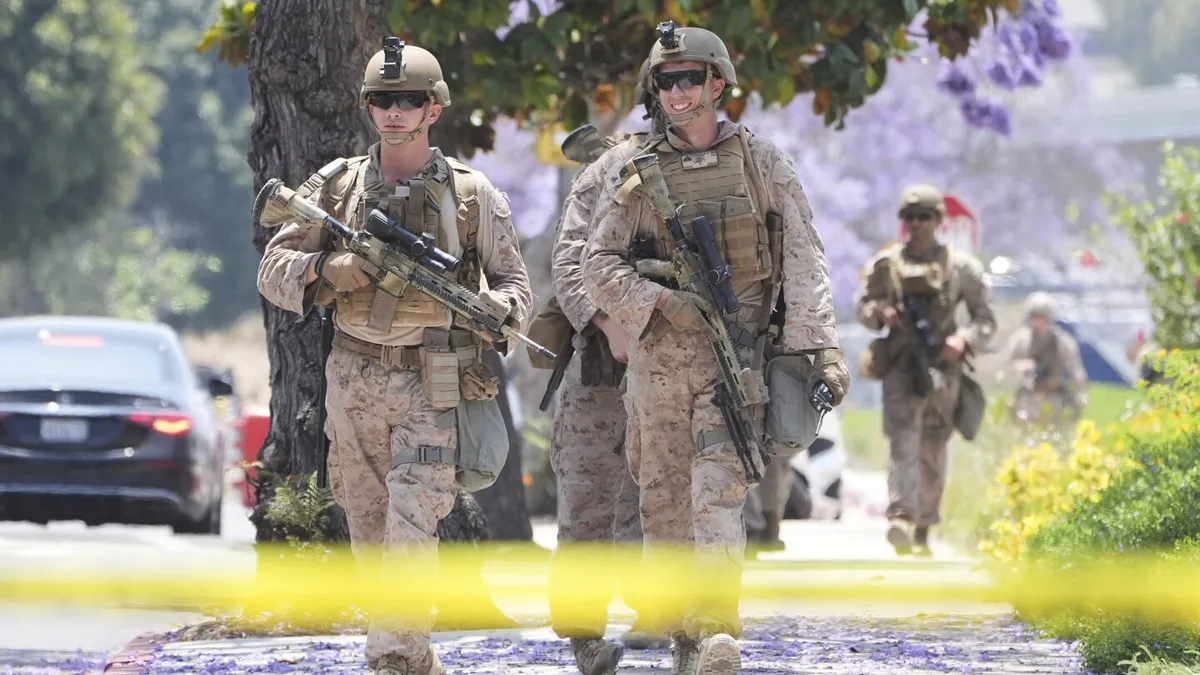
In a significant escalation of the situation surrounding immigration policies in the United States, Marines have been deployed in Los Angeles to protect a federal building following a week of intense protests. These demonstrations have arisen in response to federal immigration raids, sparking outrage and mobilizing communities nationwide. This weekend, various groups are preparing for further demonstrations against President Donald Trump’s controversial immigration policies.
The Marines, clad in combat gear and equipped with rifles, have begun assuming roles previously held by National Guard members who were initially deployed to Los Angeles amid the unrest. This change in personnel highlights the serious nature of the situation, as protests around the country have resulted in numerous clashes with law enforcement and hundreds of arrests. Activists are determined to voice their opposition to the federal government's immigration tactics.
California Governor Gavin Newsom has publicly condemned the deployment of federal troops, labeling it a “serious breach of state sovereignty.” In a bold move, he has taken legal action to challenge the federal government's decision, arguing that the intervention constitutes a power grab by President Trump. Newsom's stance underscores the growing tension between state and federal authorities regarding immigration enforcement.
In defense of his actions, President Trump has referenced a legal provision that permits the mobilization of federal service members in situations deemed as “a rebellion or danger of a rebellion against the authority of the Government of the United States.” This justification has raised concerns among many, who interpret it as an overreach of executive power during a time of social unrest.
This weekend, communities across the nation are gearing up for protests aimed at challenging President Trump’s immigration policies. The outpouring of public sentiment illustrates the deep divisions surrounding immigration and the actions taken by federal authorities. As more protests are anticipated, the situation in Los Angeles serves as a focal point for broader discussions about immigration reform and state rights.
This article provides a comprehensive overview of the current developments regarding military involvement in domestic protests and highlights the ongoing debate surrounding immigration policies in the United States.